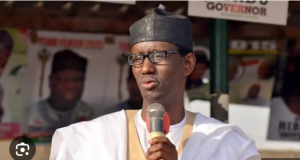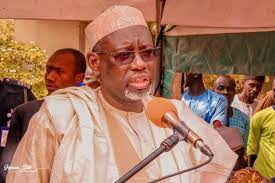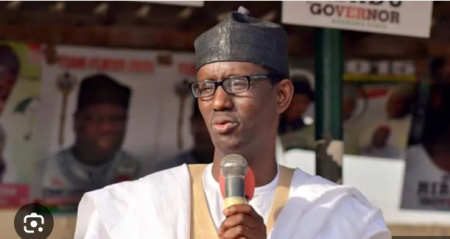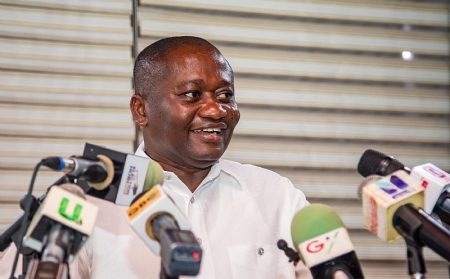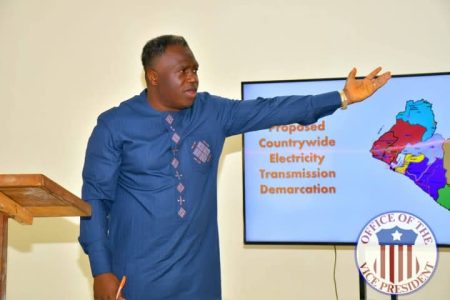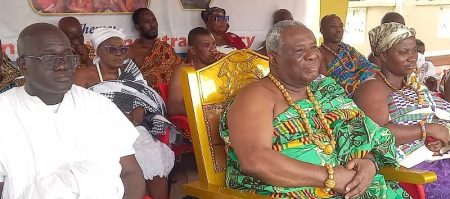The persistent clashes between farmers and herders in Jigawa State, Nigeria, have prompted the Herdsmen-Farmers Dispute Resolution Committee in Gagarawa Local Government Area to intensify its peacebuilding efforts. These recurring conflicts, often escalating during harvest seasons, have led to tragic loss of life, widespread destruction of farmlands, and displacement of communities, particularly in areas like Gagarawa, Guri, Hadejia, and others. Recognizing the urgent need to address this escalating violence, the committee, under the leadership of Kabir Usman, the District Head of Gagarawa and Dokajin Gumel, organized a crucial peace mediation meeting in Zingaran and Jaftar towns, bringing together Hausa farmers and Fulani herders, the two groups at the heart of the conflict.
The peace mediation meeting served as a platform for dialogue and reconciliation between the warring factions. The Emir of Gumel, Ahmad Sani, represented by Bala Muhd, emphasized the critical importance of peaceful coexistence, highlighting that lasting harmony can only be achieved through open communication, mutual understanding, and a willingness to address grievances constructively. He stressed that the success of the reconciliation efforts hinges on the continued commitment and cooperation of both the farmers and herders. This sentiment was echoed by Kabir Usman, who urged the feuding groups to embrace peace as a fundamental prerequisite for development and progress. He pointed out that a climate of conflict hinders any meaningful development, making peace an absolute necessity for the prosperity of the region.
The District Head of Yalawa, represented by Malam Gambo Bulama, lauded the committee’s initiative as a significant step towards resolving the long-standing conflict. He encouraged all parties involved to prioritize the common good and set aside their differences in pursuit of lasting stability and peaceful coexistence. The meeting underscored the importance of community involvement in conflict resolution. The presence of stakeholders, security officials, community leaders, and religious leaders demonstrated a collective commitment to finding peaceful solutions and preventing further violence. Their involvement signifies a broader societal recognition of the urgency and importance of addressing the root causes of the conflict through dialogue and collaborative problem-solving.
The participation of diverse stakeholders also highlighted the multifaceted nature of the conflict, requiring a multi-pronged approach to resolution. Security officials can contribute to maintaining order and preventing further outbreaks of violence, while community and religious leaders can exert their influence to promote reconciliation and understanding at the grassroots level. This collaborative approach recognizes that sustainable peace requires addressing not only the immediate triggers of violence but also the underlying socio-economic and cultural factors that contribute to the conflict.
The positive response from both farmers and herders at the conclusion of the meeting offers a glimmer of hope for lasting peace in the region. Their expressions of optimism and commitment to the reconciliation process suggest a willingness to move forward constructively. This positive momentum needs to be sustained through ongoing dialogue, concrete actions to address grievances, and the implementation of mechanisms to prevent future conflicts. The success of these efforts will depend on the continued commitment of all stakeholders, including government authorities, community leaders, and the farmers and herders themselves.
The long-term success of these peacebuilding efforts requires addressing the root causes of the conflict. This involves tackling issues such as competition for land and resources, climate change impacts, and the lack of effective conflict resolution mechanisms. Sustainable solutions may include promoting equitable access to resources, implementing climate-resilient agricultural practices, strengthening local governance structures, and fostering inter-communal dialogue and understanding. By addressing these underlying issues, the communities in Jigawa State can build a foundation for lasting peace and shared prosperity.


